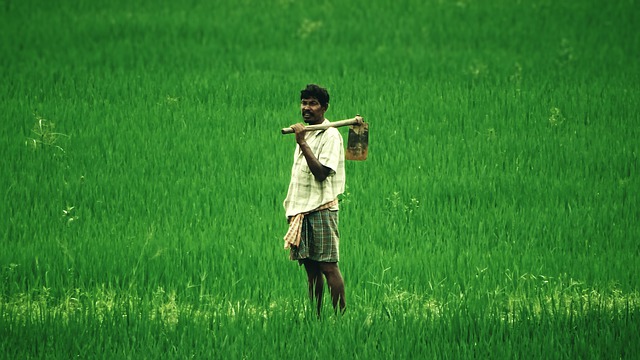The essence of real economic activity is that people have certain genuine needs for material goods and services and in order to fulfill these genuine needs directly or indirectly they carry out certain activities which can be called their livelihoods. The effort should be to ensure that needs can be met in a satisfactory way, and the labor that people take up for this is creative and fulfilling, or at the very least is not of a nature that harms health and spirits. The process of ensuring this and matching creative work to the fulfillment of genuine needs can be called economic development . The social science which studies this phenomenon can be called Economics.
If genuine needs are matched well to creative work, we can say that economic development has been satisfactory. But many things can go wrong. Genuine needs of many people may be ignored. Instead labor may be directed towards the fulfillment or non-genuine, non-essential demands or those carrying out labor may be forced and exploited in various ways. In cases of such mismatch or asymmetry, we say that economic development has not been good and reforms are needed.
This is a simple formulation. Many questions arise. Which needs are to be considered genuine, and on what basis? Which needs will be considered as non-genuine? What will happen when genuine needs are getting ignored, and non-genuine needs get more preference? How can the present generation be caring about the needs of future generations? How can human beings be caring about the needs of other forms of life? Which kind of labor is creative and fulfilling? What type of labor is considered forced or exploitative? What kind of labor uplifts the human spirit and what kind lowers it? What has been the past experience in this context?
Most of these questions can be considered within Economics in some detail, while for more details other social sciences and disciplines are more relevant such as Sociology, Philosophy, Ecology, History, Ethics, Criminology and Spirituality. What we study in Economics has to be complemented and supported by several other social sciences and branches of knowledge.
Unfortunately Economics has drifted far away from this core role of studying and helping to improve the fulfillment of genuine needs by creative labor. Instead it tends to include and equate all manners of plunder, greed, exploitation, destruction, wrongful appropriation and inflicting of massive ecological ruin, even killing of life supporting systems in the same category as the satisfaction of genuine needs by creative labor, as strange attempts are made to put all these together and add them up to create something called GNP or GDP which is then used as a magic mantra and chanted again and again to justify all kinds of wrong activities and notions.
This serious mistake needs to be corrected, as this has been used to justify all kinds of false notions of ‘progress’ and even to justify plunder and destruction of life nurturing conditions as progress. This false science is somehow used or blatantly misused to prove the years of the destruction of life-nurturing conditions of earth as the years of the most remarkable progress. At a time when forests are most needed, these are instead axed and this is listed as adding to GNP. When protection of health requires big cuts in tobacco and alcohol, advertising leads to increase in their consumption – this too is listed as adding to GNP. When it is most essential to reduce greenhouse gas emissions there are very high emission tar sand projects and very large-scale meat production projects involving felling of ecologically crucial forests and this too is listed as increase of GNP and hence progress. When humanity cries out for peace and environment protection a trillion dollar investment is made to modernize nuclear weapons and this too is listed as increase of GNP.
Hence the social science of Economics should get rid of false notions and come close to its core task studying and suggesting how close linkages of genuine needs with creative work are best ensured.
For example a very important need for human beings is for adequate, nutritious and safe food. This can be produced in several ways, but we have to study how the best results will be achieved. What are the ways which are sustainable and produce food while maintaining soil fertility, water table and other basic conditions of safe food production (such as protection of pollinators and natural pollination processes)? How the creative efforts, skills and talent of millions of farmers can be linked best to the production of adequate, safe and nutritious food for all people so that creative, sustainable, satisfying livelihoods are available to farmers, now and in future?.
So the core task of Agricultural Economics, a branch of Economics, is to study how a genuine need (adequate, safe and nutritious food) is best linked to the creative talents and efforts of farmers. Several aspects of this linkage are best studied by Economics, while others are taken up by various related sciences and social sciences including Ecology, Agro-Ecology, Botany etc.
The sooner Economics takes to its real and core concerns, the better it will be for all students and teachers of Economics, for Economists and for humanity. All the time there is a great song and dance about whether there is a recession, how long recession will remain and when fast growth of economy will start again. Governments are judged by this, elections are decided. But these are not really the most relevant questions . It is much more relevant to ask the production of which goods and services is increasing or decreasing and whether these meet genuine needs. Recently I read a newspaper editorial expressing serious concerns about the recession of car industry in India and recommending a policy package to increase or stimulate car manufacturing growth. In the same newspaper there was a bigger article on how excessive cars on roads are increasing pollution, accidents and traffic jams to levels of high concern.
In many villages of India I hear very bitter complaints that the setting up of liquor vends in their villages under a government policy has led to rapid spread of alcoholism, ruin of health, violence against women and children, disruption of several families, increase of crimes and accidents. But government accounts speak proudly about how revenue increased rapidly by opening liquor vends in a record number of villages. Governments are happy to claim that earnings from mining have increased, but you when you visit some of the mining sites you hear villagers complaining of destruction not just at mine-site but grave damage to farmers, forests and water-sources of several nearby villages and mining workers suffering too much from silicosis and accidents.
The number and extent of such serious anomalies and contradictions will decrease if those who study public accounts and finance also study the ethics of raising resources and learn to give adequate importance to social and ecological costs of all extractive activities. Above all, look at genuine needs and inquire whether as a net impact of any activity or decisions, these are being satisfied or denied. By asking such relevant questions, economics can and should assume its core task of linking genuine needs with creative livelihoods.
Bharat Dogra is a journalist who has been involved with social movements and initiatives. Email bharatdogra1956@gmail.com.














